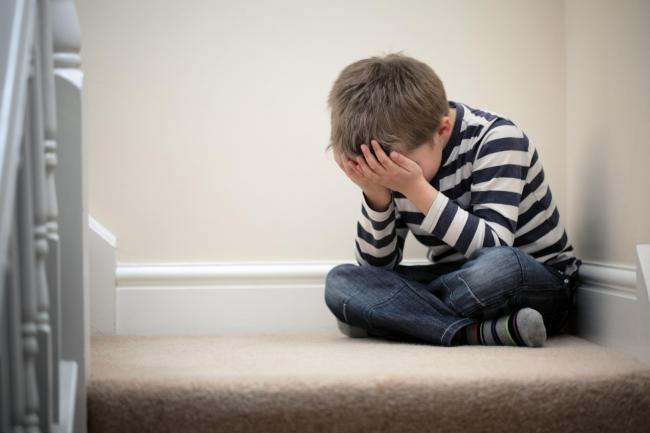
2020 has been an uncertain and stressful year. COVID-19, and its many consequential effects, have led to some very difficult moments. The loss of loved ones, livelihoods and freedoms that we take for granted have been difficult to bear. It has been painful to watch social events unfold and witness suffering on a seemingly endless news cycle. It is fair to say that 2020 has impacted us all in a variety of ways.
Many of us have had firsthand experience with anxiety and depression this year. Some have struggled with significant symptoms of mental distress for the first time ever. However, despite these stressors, there are reasons for optimism. And there are many ways to build a buffer of strength to help you cope with all that 2020 has brought us.
Looking At The Positive
While it may feel like the only impacts this year have been negative, adversity always brings out positive outcomes as well. Here are a few of the silver linings from this year.
Increasing Our Dedication to Physical Health
As we worried how each of us would fare against the virus, a renewed focus on the importance of overall health emerged. Out of that concern grew a determination to improve nutrition and fitness. Many learned the art of home cooking, or expanded their culinary skills as we refamiliarized ourselves with the simple pleasure of a family meal. The concept of nutrition as it relates to mental health is not new, and whether the goal is to learn a new hobby or improve overall health, this focus on well-being has proved to be vital in many ways.


Reinforcing our Bonds with Others
The need for social support was never more pronounced than when it became difficult or impossible to be with those we care about. Difficult times often bring people together, and not being able to gather and draw support from each other added anxiety. Yet, our ties with loved ones and friends became reinforced.
Under stay-at-home orders, parents and children discovered new interests and strengthened bonds. Social distancing, strict quarantines and overall caution demanded creative approaches to maintaining relationships. Many found new ways to stay emotionally close with those they care about, no matter how far away they were.
Adapting and overcoming this obstacle didn’t mean that we missed those in-person visits any less, but it did mean that we try to stay connected, and that is very beneficial to mental health.
Taking a Cue from Those with Mental Illness
Even as symptoms like depression and anxiety have widely increased this year, some people who were managing existing mental health conditions before the pandemic actually saw an improvement in symptoms. Drastic changes in routines due to quarantines meant that daily and often problematic stressors were suddenly reduced, as things like battling traffic, excessive demands on our time and competing obligations evaporated.
Those who saw improvements in symptoms certainly worried as much as everyone else, but may have found that they had more capacity to cope without the usual daily pressures weighing on them. Additionally, because these individuals were actively managing symptoms, they already had tools to help manage their anxiety. For those who didn’t have a mental health condition before the pandemic, there was something to learn from those who did, as they are well-practiced in how to cope and how to heal.
Talking About our Mental Health
It is still true that stressors weigh on us and that depression and anxiety are real concerns. However, the conversation around mental illness and symptoms of emotional distress is shifting. We have learned to talk more about the impact of stress and symptoms of mental illness. The phrase “it’s okay to not be okay” is now openly spoken.
These conversations are helping to create understanding and empathy while encouraging people to reach out for support. For example, Foundations Counseling has seen calls and emails increase dramatically since March as compared to the same time frame last year. This shows that people are beginning to feel less afraid of asking for help and support when they need it. Although we still have a long way to go, this represents a big step forward in reducing stigma, increasing awareness of the need for services and giving people the information and tools, they need to better support their mental health.
These silver linings are reason for hope. They do not diminish the anxiety and distress many have experienced this year, but they highlight the many ways we can increase tools for coping with stress and anxiety during worrying times.


Managing Stress By Building Resilience
Finding ways to take care of yourself, knowing when to reach out for support, and knowing where to find that support is critical to managing stress and building your resilience. Here are some suggestions that may be helpful.
Stay Connected. Connections with friends and family have helped boost us through the pandemic, and they continue to be important to mental well-being. Foster those relationships, whether face-to-face, on a video call or with a phone call. Staying connected to others improves our own capacity for compassion, with the benefit of mutual support.
Reframe your thoughts. Feeling a sense of control can often reduce worry and stress. One way to accomplish this is by reframing your thoughts in a positive way. Take a few deep breaths, think over the situation and how you feel, then challenge your thoughts in a way that focuses on the positive. Whether it’s counterproductive thoughts, or how stressors affect you, breaking the cycle of pessimism helps improve your outlook.
Avoid negativity. Limit your media exposure, or restrict it to positive and uplifting sources. The added tension from a constant cycle of bad news and negativity can prompt a sense of threat, leading to anxious feelings.
Express gratitude. Think of something different each day that you’re thankful for. Recognizing what you can appreciate is beneficial to stress management.
Take care of your health. Improving your physical health strengthens your mental health, and can start with a few small steps toward your goals.
Spend time on your interests. Make it a point to cultivate your interests and hobbies. Whether you enjoy games, creative pursuits or hands-on activities, even a few minutes dedicated to these can be restorative. If you’re not sure where to start, think of topics that you find interesting and then explore possibilities.
Make note of what helps and then build on it. Identify the positive methods that you already use to manage stress and anxiety. As an example, if your go-to coping tools are deep breathing and stretching, consider adding a brisk walk or trying yoga. These may help calm anxiety and offer further relief.
Ask for help when you need it. As you work on building resilience, don’t forget that you’re not alone. When the anxiety, sadness or other symptoms become overwhelming, it’s time to reach out for help.
Self-care strategies are important to overall mental health and can provide a greater sense of control anytime you feel anxious. 2020 has without question been a difficult and stressful year. It has also been an opportunity to learn how to cope and build resilience, a powerful buffer against stress and anxiety regardless of the challenges the year has brought us.
We are always here to help people residing in McKinney, Plano, Dallas, Denton, Allen, Garland, and the surrounding communities throughout Texas. If you believe that you need help in building mental health resilience and a formula to cope with stressors, please do not hesitate to reach out to our professional counselor team at Foundations Counseling.

























































